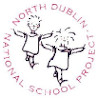At the core of the curriculum in the NDNSP is our Ethical Education programme. Historically, this was known as the Core Curriculum.
Ethical Education is defined as education that enlightens, challenges and widens our perspective of the world. It encourages reflection and engagement with local and global issues and emphasises a shared responsibility for ensuring that equality and human rights are extended to all. Ethical Education invites pupils and teachers to engage with issues and problems facing society and aims to develop the skills of critical-thinking, discussion, and debate.
It is fundamental to the educational principles of the school and permeates every subject area and every social interaction. Given this wide context, it is not surprising that delivery of the Ethical Education curriculum is a multi-layered process.
Topics are planned and presented as part of a scheme of work but on top of this are issues that arise daily, and are dealt with in the context of the Ethical Education Curriculum.
This is the strength of the curriculum; it is a vibrant and living part of the school and it contains within it the flexibility to respond to situations as they arise whilst providing for a planned and structured approach.
The planned component of the curriculum follows the Educate Together Learn Together programme. The Learn together programme aims to enable the students to:
- Become self-aware, reflective individuals with a secure sense of belonging and identity.
- Develop the knowledge, skills, values and attitudes that will facilitate them to live as ethical people who are empathetic, socially aware and committed to democratic principles and values, global citizenship and equality.
- Develop and use critical thinking skills that will facilitate them to critique their world and empower them to give reasoned answers for their opinions, decisions and actions.
- Recognise their role as active members of a democratic society with the potential to take action that will lead to positive change.
- Develop ethical principles in relation to human rights, equality and justice, and apply these principles to their daily lives.
- Become familiar with the tenets and beliefs of the major religions and rational understandings of the world.
- Relate this learning to their individual experience in the context of their local, national and global community.
